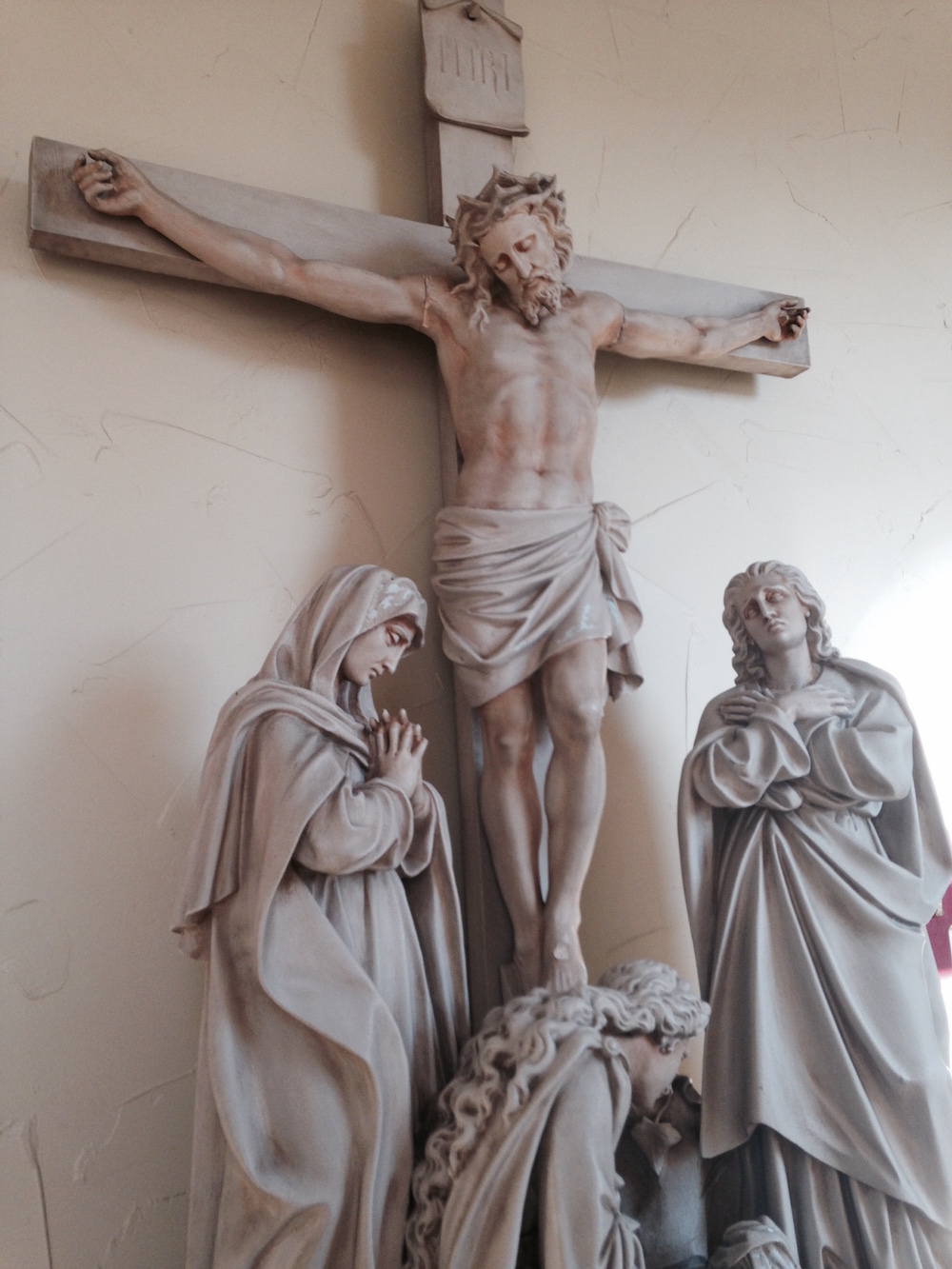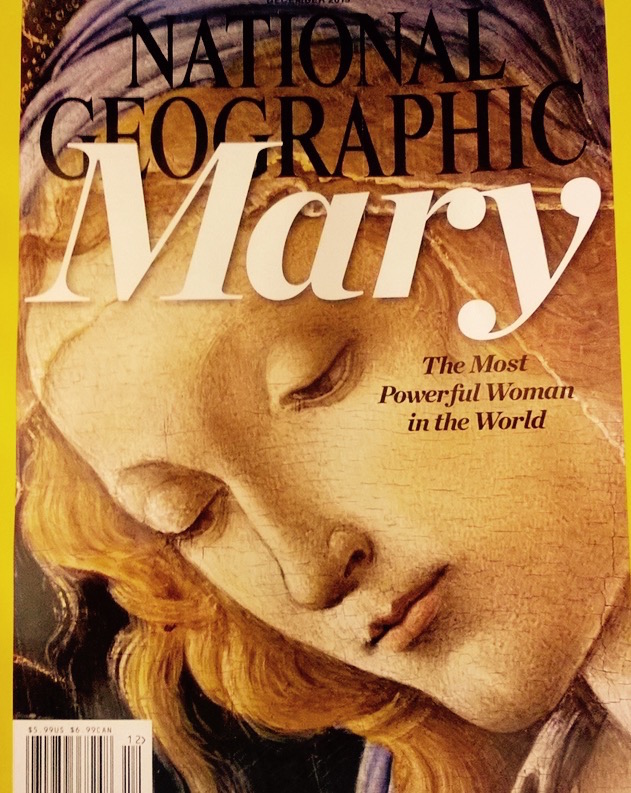 With the Feast of the Triumph of the Cross having just presented itself again on the liturgical calendar, it’s hard not to wonder: If Christ triumphed on the Cross, then why is the world such a mess?
With the Feast of the Triumph of the Cross having just presented itself again on the liturgical calendar, it’s hard not to wonder: If Christ triumphed on the Cross, then why is the world such a mess?
During the past two weeks, I’ve wept over the news of a precious friend’s recurrence of beastly breast cancer, wept with a still-grieving friend over the loss of a loss of her infant son several years ago, and listened to a friend’s weeping heart over the agony of his son’s addiction. These friends I’m crying with and for? All great people of faith. All devout Catholics who deeply love the Lord. All seeking to look at the serpent that’s bitten to find life instead of death (Numbers 21:9).
For a long time, I believed that being triumphant as a Christian meant that life would somehow magically go well. I can still hear that peppy song we used to sing every Sunday at the little evangelical church I attended in my twenties: Abiding in the vine/abiding in the vine/ love, joy, health, peace, he has made them mine/ I’ve got prosperity, power and victory, abiding, abiding in the vine.
I bit into that message hook, line and sinker because I wanted to believe that faith could somehow produce a particular outcome from God, and hence assure me of some control over life. I wanted to believe that faith could guarantee good results, because that perspective made life seem less daunting and me more powerful. The rude awakening of learning the hard way that “the abundant life” does not equal a pain free life was itself extremely painful, but it compelled me to seek a new understanding of the meaning of the Triumph of the Cross. In so doing, I discovered the work of Joseph Ratzinger (Pope Emeritus Benedict XVI) who’s had plenty to say about the meaning of the Cross.
Ratzinger once wrote:
God’s compassion has flesh. It means scourging, crowning with thorns, crucifixion, a tomb. He has entered into our suffering. What does this mean, what can it mean? We learn this before the great images of the crucified Jesus and the Pietà, where the mother holds her dead Son. Before such images and in them, men have perceived a transformation of suffering: they have experienced that God himself dwells in the inmost sphere of their sufferings and that they became one with him precisely in their bruises. (Ratzinger, The God of Jesus Christ: Meditations on the Triune God, 53)
Truth be told, many of us believe that if we could just get rid of our bumps and bruises, then God would be with us. Or conversely, we think that if God were really with us, then we wouldn’t suffer so many bumps and bruises. But that is not the message of the Cross. Ratzinger goes on: The crucified Christ has not removed suffering from the world. But through his Cross, he has changed men. (Ratzinger, 53)
How, we want to know? How has God transformed suffering when he hasn’t taken away life’s pain? And how has he changed mankind through the Cross, when life on this Earth is still disordered?
By entering into the bowels of human suffering, Christ transformed suffering from a dreaded curse into a love offering that becomes the gateway of intimacy with him—a door through which he comes to meet us in our broken humanity. On the Cross, Emmanuel’s presence on this Earth finds its definitive meaning—the place where the deepest human anguish becomes the very locus of God with us; where he makes himself present in every God-forsaken experience of human life. Further, Christ asks us to embrace the Cross and let its triumphal resurrection fruit bleed grace into us—grace that enables us to stand in faith, hope and love in the face of life’s most formidable challenges.
It is instructive that the Church places the Feast of Our Lady of Sorrows one day after the Feast of the Triumph of the Cross. The Mother of God, at the foot of the Cross, incarnates for us what “redeemed” suffering looks like. There she stands in travailing union with the God-man, uttering an acquiescent: Let it be done to me according to your will. There she stands in piercing pain, anticipating new birth, new life, a resurrection. There she stands with eyes fixed on Christ, trusting that love is stronger than death. The Crucifixion—his, hers, ours—thus becomes the place where each human being is intimately united to God.
It is not by eschewing pain and sorrow that we become victorious, but by inviting Christ into it that we receive the grace to perceive suffering as love, as gift, as triumph. And it is this very love—this self-gift—offered for others that turns wounds into glorified gashes in humanity capable of bearing great fruit. That is how the Cross changes us. And that is precisely where we experience its triumph.
This article was previously published at Aleteia.


 As I watched the excellent movie Suffragette this past weekend, which documents the history of women’s struggle for the right to vote in England, two things really struck me: 1) The women’s rights movement was rightly spawned by the need for women to escape the unjust, dehumanizing and often brutal treatment suffered at the hands of men. 2) It took less than 100 years after gaining the right to vote for women to begin to use the same force, violence and dehumanizing domination they had sought to escape—most tragically, by exerting themselves against their unborn children.
As I watched the excellent movie Suffragette this past weekend, which documents the history of women’s struggle for the right to vote in England, two things really struck me: 1) The women’s rights movement was rightly spawned by the need for women to escape the unjust, dehumanizing and often brutal treatment suffered at the hands of men. 2) It took less than 100 years after gaining the right to vote for women to begin to use the same force, violence and dehumanizing domination they had sought to escape—most tragically, by exerting themselves against their unborn children.